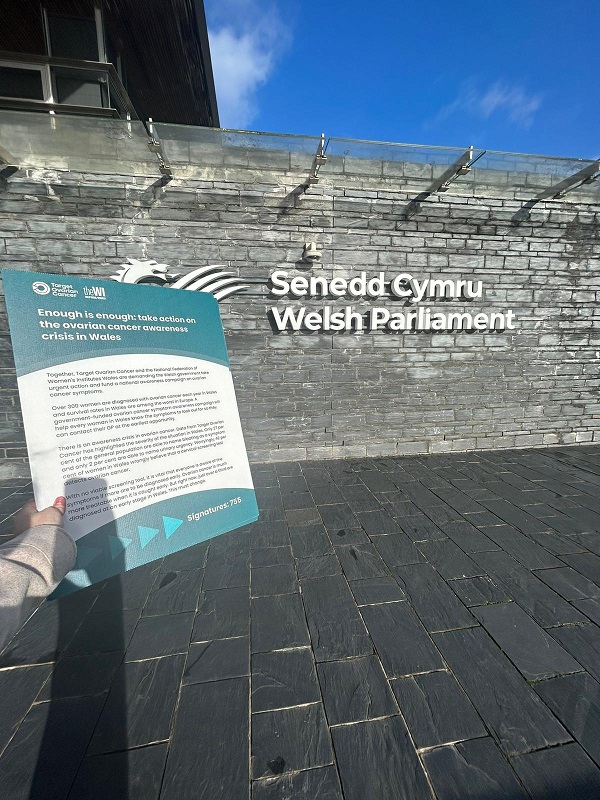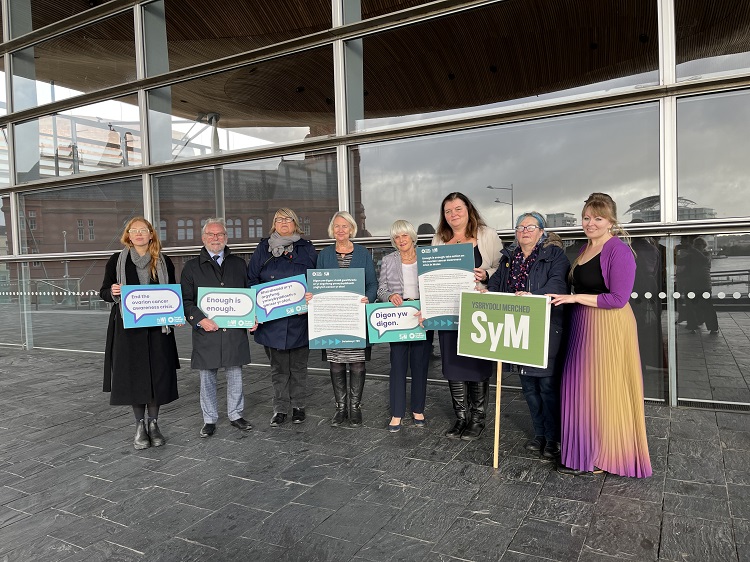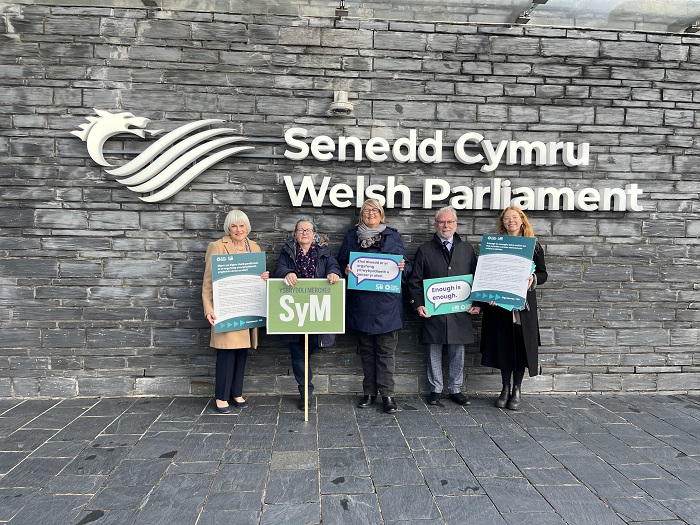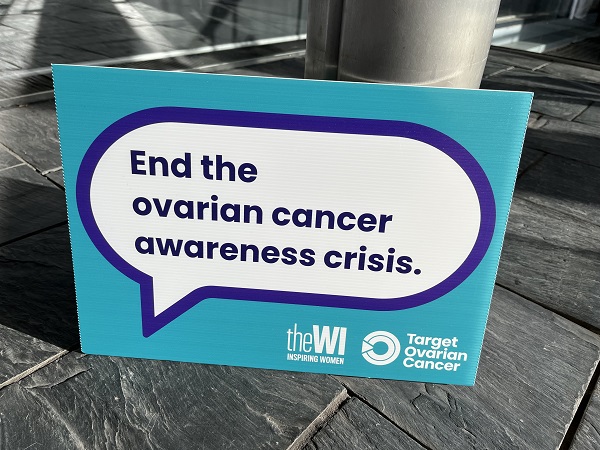Women of Wales demand urgent action on ovarian cancer
On 14 November 2023, NFWI-Wales and Target Ovarian Cancer handed in a 755-strong petition to Eluned Morgan MS, Minister for Health and Social Services demanding the Welsh Government take urgent action and fund a national awareness campaign on the symptoms of ovarian cancer.

To mark the hand-in of the petition, WI members and Target Ovarian Cancer supporters came together on the steps of the Senedd where they spoke to MSs about the need for urgent action to address the ovarian cancer awareness crisis. Jill Rundle, Chair of NFWI-Wales, said:
“In 2021, WI members passed a resolution calling for more action to raise awareness of the signs and symptoms of ovarian cancer in order to save lives. Greater awareness of the symptoms is crucial to early diagnosis. Put simply, too many people are dying because their ovarian cancer is not found early enough. WI members are clear that this must change.”
 Over 300 women are diagnosed with ovarian cancer in Wales each year and survival rates are among the worst in Europe - yet too few people know the symptoms and what to look out for. Target Ovarian Cancer’s research found that concerningly just around a quarter of women know that bloating is a key symptom of ovarian cancer. Chief Executive at Target Ovarian Cancer, Annwen Jones OBE, said:
Over 300 women are diagnosed with ovarian cancer in Wales each year and survival rates are among the worst in Europe - yet too few people know the symptoms and what to look out for. Target Ovarian Cancer’s research found that concerningly just around a quarter of women know that bloating is a key symptom of ovarian cancer. Chief Executive at Target Ovarian Cancer, Annwen Jones OBE, said:
“As there is currently no ovarian cancer screening programme, symptoms awareness is all the more crucial. By knowing the symptoms, a woman is more likely to contact their GP with their concerns earlier and have ovarian cancer ruled out or confirmed. A government funded awareness campaign listing the symptoms of persistent bloating, abdominal pain, needing to wee more often and feeling full quickly, would address our concerns, increase the number of women diagnosed at an early stage and ultimately the chances of survival.”
 49-year-old Amanda Davies, from Pembrokeshire, is urging the government to prioritise this area of women’s health after her own diagnosis of ovarian cancer. She said:
49-year-old Amanda Davies, from Pembrokeshire, is urging the government to prioritise this area of women’s health after her own diagnosis of ovarian cancer. She said:
“By the time my symptoms appeared together, I had stage 3 ovarian cancer and was given six months to live. This was devastating. I had been going to the GP, but it was never investigated as I was perceived as ‘too young’ for the disease.
“I had bloating and abdominal pain, two of the key symptoms, but there were some symptoms I didn’t know. I never put the symptoms together, despite knowing my Nan died of ovarian cancer. To think, it was ovarian cancer making me unwell. I wonder if there had been an awareness campaign, listing the symptoms and sharing the experiences of women of all different ages whether I would’ve put it all together.
“A government campaign to raise symptom awareness and attract funding for research and charities supporting ovarian cancer patients is and should be a priority. The symptoms are often mistaken for other illnesses, stress, or misdiagnosed in younger women. Women may still feel embarrassed to talk about “problems down below” and will often put their symptoms down to getting older - meaning their cancer is already advanced and in some cases untreatable - creating needless deaths.”
Find out more about the WI’s See the Signs campaign here.

